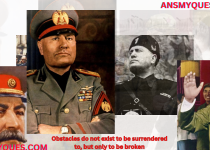THE MEANING OF “THE BIBLE AND THE PLOUGH” WILL REGENERATE AFRICA
THE BIBLE AND THE PLOUGH WILL REGENERATE AFRICA
T.F. Buxton, in ‘The African Slave Trade and its Remedy’ (London, 1840), developed the idea that Christianity and commerce operating together would destroy the slave trade and ‘civilize’ Africa by reforming African Attitudes to slavery and by making legitimate trade profitable enough to drive out the trade in men. This idea became popularly known as ‘the Bible and the Plough’. Concentrating upon
the benefits to commerce, Buxton suggested that the Bible should help the plough in ‘civilising’ Africa, a task left to the missions. Henry Venn, who became general secretary of the C.M.S. in 1841 developed and popularized a view that rather the plough could assist the Bible. This idea dominated educated African thinking until well into the 20th century. When the missions turned away from it a section of Africans broke with the established denominations and launched the African church movement. Within this protest and separatist movement Buxton and Venn’s theory flowered in its most unique and successful form. Notes.
SHORT SUMMARY OF THE NIGER EXPEDITION OF 1841
It was centered on the bible and the plough by Thomas fowell Buxton and supported by others like William Wilberforce and Clarkson. They were of the belief that slave trade should be eradicated from Africa and replaced with Christianity and farming. It was championed by the CMS and the Basel who delegated about 144 specialist to embark on this journey, They took action and convinced the lord Melbourne government and they were given 100,000 pounds and they commissioned three ships (the albert, Soudan and Wilberforce), these ships were equipped and contained different tools for making observation on plants, animals, soil and weather. Some prominent natives were Samuel ajayi crowther and Rev JF Schon (a German missionary), Ajayi crowther was a linguist. They aimed to sign treaties with prominent chiefs so as to stop slave trade but they only succeeded with Obi of Gabon and Attah of Igala.they had a popular slogan “the bible and the plough regenerate Africa”. Their objectives were:
1) To introduce legitimate trade to the Niger and Benue basin
2) To propagate Christianity in
Africa
3) To encourage British industrialist entrepreneurs and merchant to follow the example of the British government by investing capital in the development of Africa. The outcome and reasons for the
What Are the Failure of the 1841 Niger expedition
1) Health challenges: this was a major problem that resulted to the death of 45 out of 144 people due to exposure to mosquito bite.
2) Unfavorable climate condition: this is a result of a harsh weather i.e., injurious to the missionaries, they are forced to stay indoors during the day and operate inthe night.
3) No mission stations were established
4) Importation of Guns and gun powders: this caused inter-tribal war. As a result, the missionary activities of the CMS and the Basel could not be achieved.
5) Exploitation of the people by the missionaries
6) Importation and consumption of alcohol: the consumption of alcohol by the local chiefs and the indigenous was another major problem to the 1842 Niger expedition, the consumption of alcohol also affected the missionary effort of the various missions present in Lokoja.
7) Opposition by the people
The lessons learnt by the missionaries on the 1841 Niger expedition
1) It allowed many countries to have interest in Africa
2) It made Europeans realize that African agents should be used to evangelize Africa.
3) It led to fourah bay college and the ordination of ajayi crowther in 1843
4) Problem of language was worked upon
5) It set pattern for the future expeditions
6) Better organization of CMS and other missionaries for future expeditions


